A Dermatologist Approves Of This $17 Drugstore Retinol Cream

A Dermatologist Approves Of This $17 Drugstore Retinol Cream
If you’ve never dabbled with retinol, it can seem a bit intimidating. From its highly concentrated strength to the side effects of redness, peeling and dryness, it doesn’t exactly seem inviting at first glance. But the truth is, retinol is one of those magical skincare ingredients that seems to address just about every common skin concern out there. From fine lines and wrinkles to dark spots and blemishes, retinol can tackle them all. And TBH, once you start using it, you’ll find it hard to stop.
“Retinol is the active form of vitamin A in the body and it is used topically to treat acne, build collagen and elastin and improve skin texture and tone,” says New York dermatologist Dendy Engelman, MD. And here’s how it works when we apply it to our skin: Within our bodies, vitamin A acts as a hormone, but like all good things, this vitamin depletes as we get older. According to Dr. Engelman, when vitamin A is lacking, signs of aging begin to bloom and that’s where topical retinol creams come into play.
Retinol yields retinoic acid, which "has the ability to connect to almost any skin cell receptor site and instruct it to behave like a healthy, younger skin cell,” Dr. Engelman says. “On top of that, it also functions like an antioxidant that can interrupt the free-radical damage process that causes wrinkling and other signs of aging.” See how this ingredient is a do-it-all wonder? Though don't expect results overnight. Retinol is one of those products you have to use consistently over time to get the best results. Not only will you see improvement in lines and wrinkles, but also dark spots, breakouts and texture, too.
But there are some cautions to be aware of when using over the counter retinol. For starters, if you are a pregnant or nursing momma, you’ll want to skip this step in your skincare routine for the time being. And it’s important to note that due to the powerful strength of retinol, there is the chance for redness, irritation, peeling and dryness. The good news: Dr. Engelman says the side effects will lessen with time as your skin builds a tolerance the key is to take it slow. “Start with a low strength, 0.25% or a retinoic acid derivative once a week and work your way up to a stronger strength and greater frequency if no skin issues arise,” Dr. Engelman suggests.
Now that you know exactly what retinol is and why you want it in your skin regimen, it’s time to find your favorite product. Here, a variety of skin doctors from across the nation share their go-to picks of over the counter retinol creams and serums to make your search a little bit easier. Ahead, find the best 15 retinol creams and retinol serums according to skin experts (including a few of my faves as well).

1) Elizabeth Arden Retinol Ceramide Capsules
Elizabeth Arden
ulta.com
$48.00
“These capsules are incredible for dry skin. They are formulated with ceramides, which help to hydrate the skin and can combats some of the irritating and drying effects retinols have on the skin. Additionally, they have olive, sunflower, and avocado oils in the formula, so they add additional hydration to the skin while providing all of the benefits of topical retinol.” - Dr. Engelman
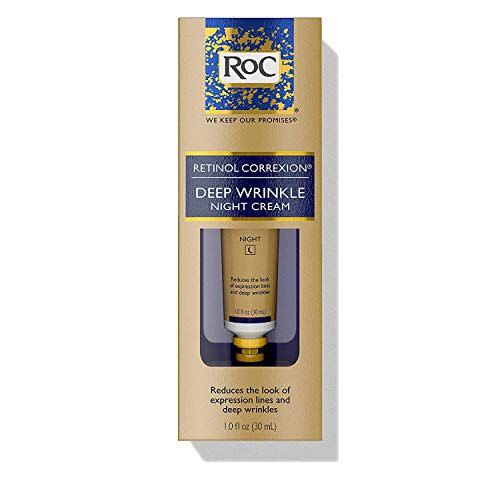
2) RoC Retinol Correxion Deep Wrinkle Anti-Aging Retinol Night Cream
RoC
amazon.com
$16.98
Whether you’re a retinol newbie or looking for an option on a budget, this dermatologist-tested formula is a great option. It’s formulated with an exclusive mineral complex that helps to reduce signs of aging and improve texture and tone.

3) SkinBetter Science Intensive AlphaRet Overnight Cream
skinbetter.com
$125.00
“This retinol has won multiple beauty awards and is a dermatologist-favorite. AlphaRet is formulated with lactic acid, a gentler AHA that is also hydrating, and an encapsulated retinol which both work synergistically to combat signs of aging like your fine lines and wrinkles, while evening out skin tone and improving texture.” – Tiffany Jow Libby, MD
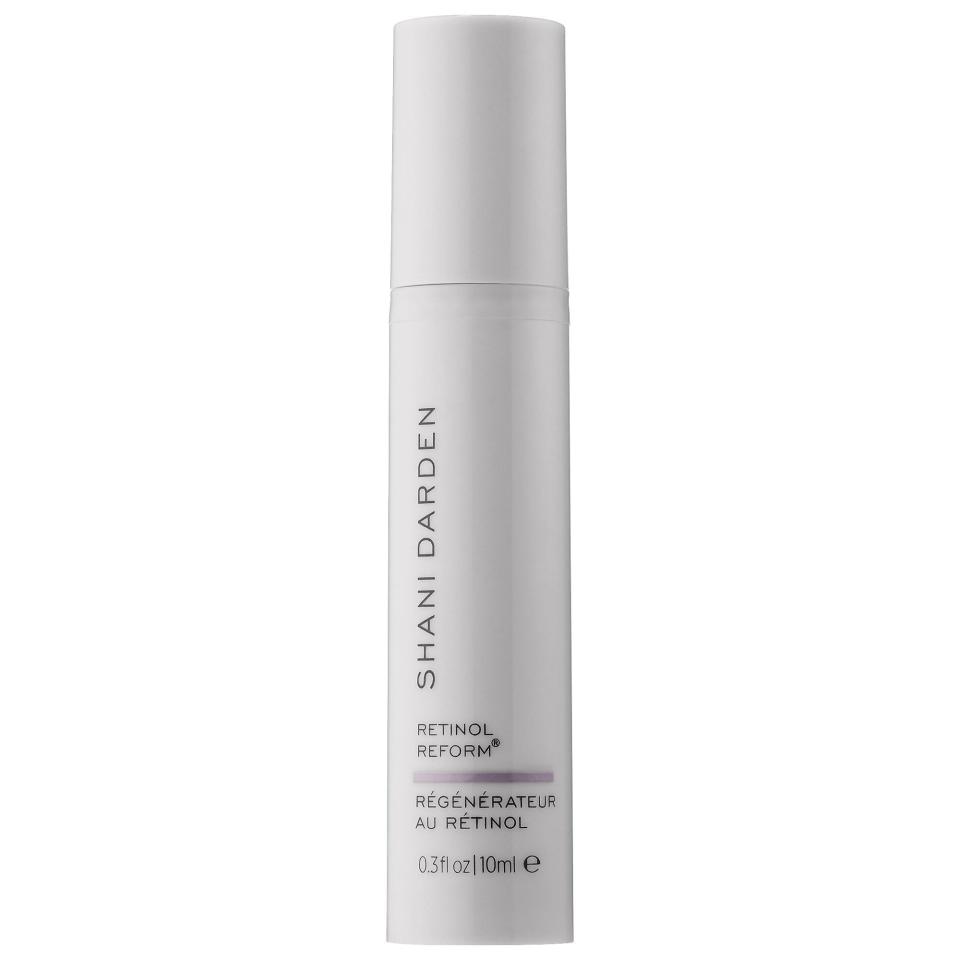
4) Shani Darden Skin Care Retinol Reform
Shani Darden Skin Care
sephora.com
$30.00
"Formulated by celebrity esthetician Shani Darden, this retinol and lactic acid serum addresses a myriad of skin concerns including wrinkles, hyperpigmentation and blemishes. Plus, you’ll notice brighter, glowing skin in no time." – AJ

5) Glo Skin Beauty Retinol + C Smoothing Peel in a Box
gloskinbeauty.com
$65.00
“This is a medical grade peel that is safe to use at home. It comes with all products and accessories you need to give yourself a professional grade peel with retinol as the star ingredient. The best part is the amazing results: Expect some peeling but eventually luminous skin.” – Dr. Engelman

6) Olay Regenerist Retinol 24 Night Facial Moisturizer
Olay
target.com
$28.99
“Olay Retinol is my go-to pick because of its tolerability. It is one of the few retinols I can use on more sensitive skin types”. – Michelle Henry, MD

7) The Ordinary Granactive Retinoid 2% Emulsion
The Ordinary
sephora.com
$9.80
“Retinol products from The Ordinary come at a great price point and there are several different strengths available, which makes the line versatile for different skin types.” –Hadley King, MD
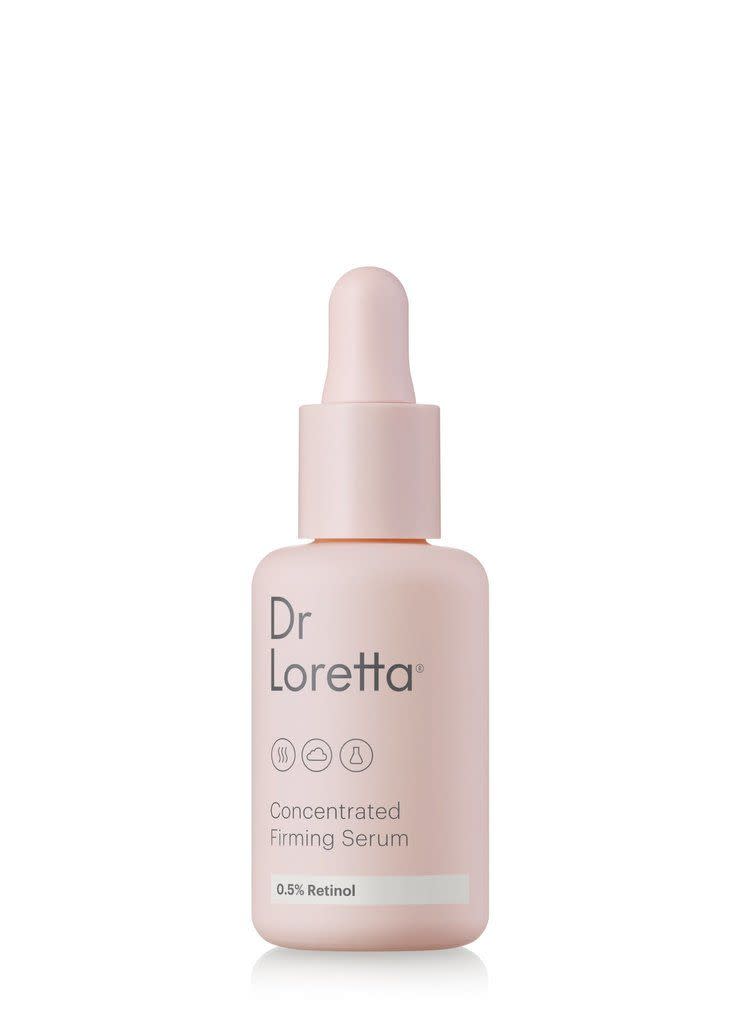
8) Dr Loretta Concentrated Firming Serum
Dr Loretta
drloretta.com
$80.00
“I worked on formulating this firming serum with 0.5% retinol in a very lipid-rich base for about two years until I got the perfect balance of retinol benefits, including skin firming, lessening in appearance of lines and wrinkles, and fading of hyperpigmentation, combined with enough hydration so that there is minimal to no redness and peeling from the product.” –Loretta Ciraldo, MD

9) Sunday Riley A+ High-Dose Retinoid Serum
Sunday Riley
dermstore.com
$85.00
"This higher-strength retinol contains 5% retinoid ester blend, 1% liposomal-encapsulated retinol blend and 0.5% blue algae that tackles a slew of skin concerns. It even helps improve the appearance of UV damaged skin."–AJ

10) PCA Skin Intensive Brightening Treatment
PCA Skin
dermstore.com
$111.00
“PCA Skin’s Intensive Brightening Treatment has unique capabilities to decrease hyperpigmentation due to sun damage, inflammation, and even melasma. It utilizes OminSome technology to stabilize the retinol, enhance its penetration, and reduces irritation. In addition to improving penetration, this technology allows the active ingredient to be slowly released over 10 hours to decrease irritation and enhance results.” – Suneel Chilukuri, MD
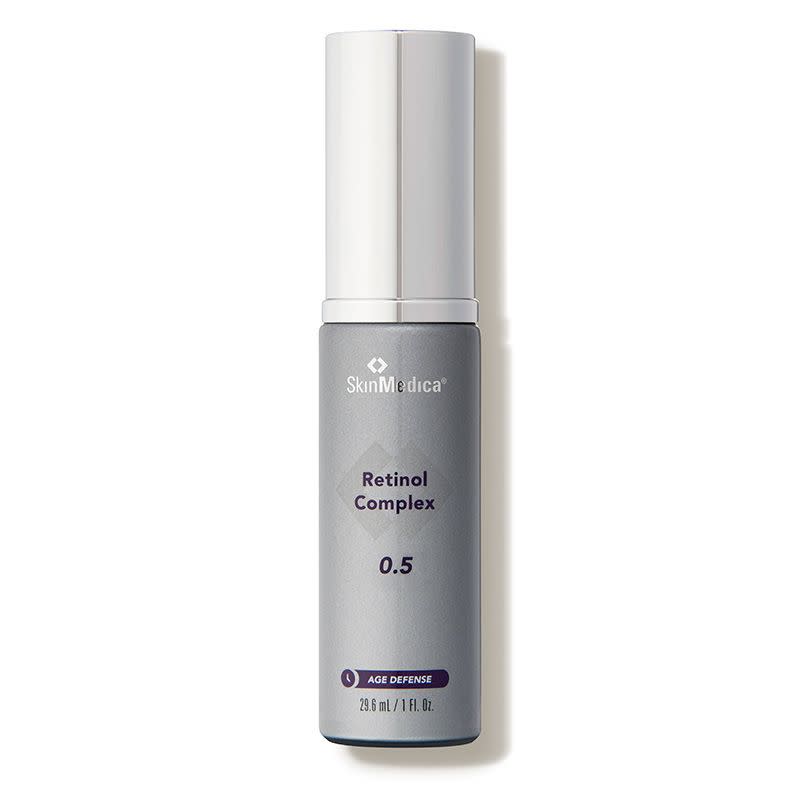
11) SkinMedica Age Defense Retinol Complex 1.0
SkinMedica
dermstore.com
$78.00
"This medical-grade retinol helps prevent and reverse signs of aging. And thanks to the magnolia bark extract, you won’t see signs of irritation or inflammation when used properly. Experts recommend beginners start using this product twice a week to work on building a higher tolerance."–AJ

12) Neutrogena Rapid Wrinkle Repair Serum
Neutrogena
ulta.com
$26.99
"This serum contains a stabilized form of retinol in a base that will not dry out the skin. As effective as retinol is as an ingredient, it will not help the skin at all if it causes irritation and you can't use it. – Joshua Zeichner, MD

13) A-Passioni? Retinol Cream
Drunk Elephant
sephora.com
$28.00
"A blend of one percent retinol and superfood ingredients make this clean product a must-try. It’s won numerous awards and is an editor and dermatologist favorite. The proof is in the results—After a clinical study, 100 percent of testers agreed that their skin appeared clearer after using the product. Need I say more?" –AJ
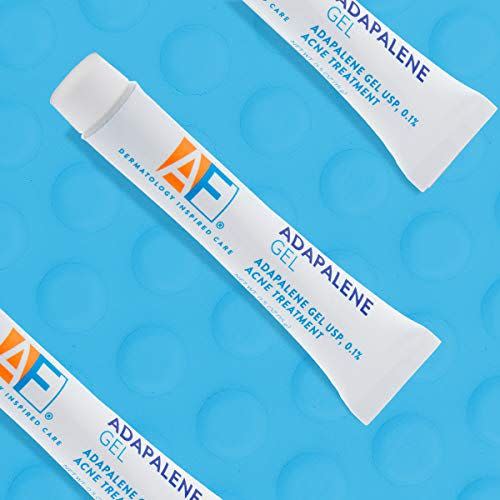
14) AcneFree Adapalene Gel 0.1%
AcneFree
amazon.com
$9.97
“Adapalene is an excellent OTC retinoid because it has a decreased risk of irritation compared to other prescription retinoids and excellent efficacy for treating acne and for anti-aging. Adapalene also has anti-inflammatory benefits.” -Dr. King
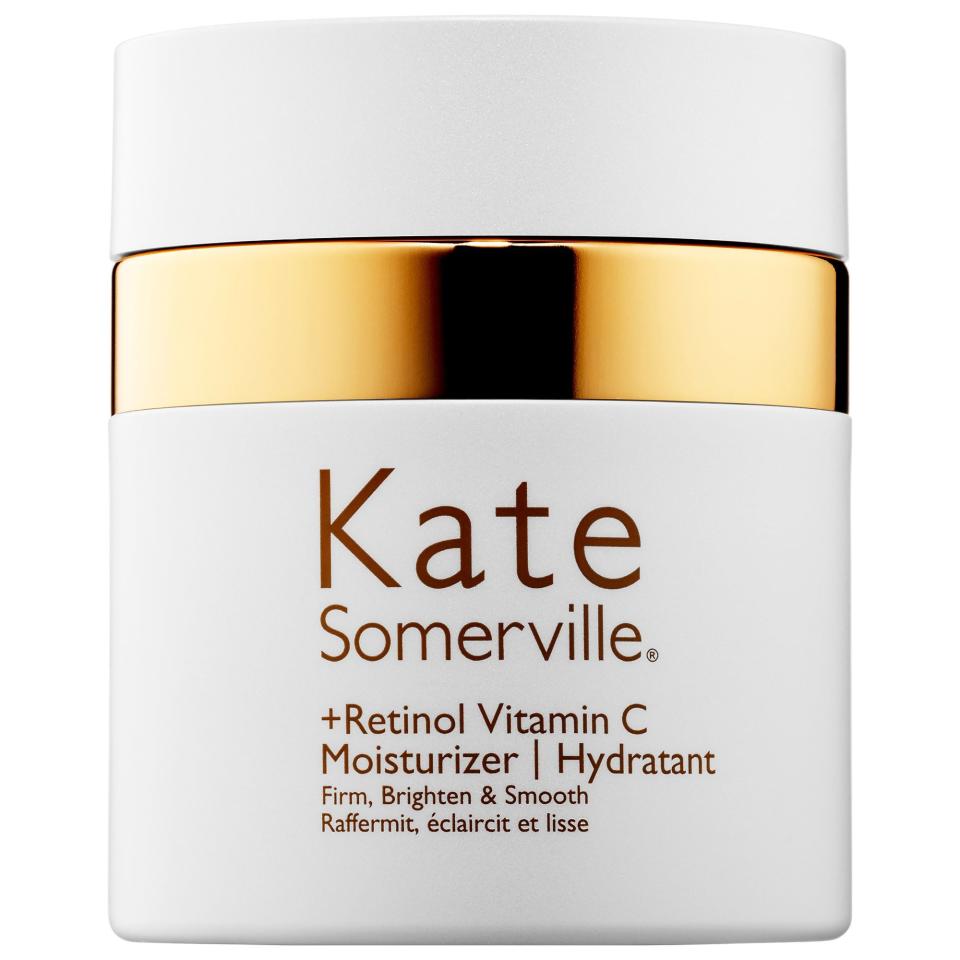
15) Kate Somerville +Retinol Vitamin C Moisturizer
Kate Somerville
sephora.com
$90.00
"Typically, retinol and vitamin C are applied at separate times (vitamin C in the morning and retinol at night), but this hydrator combines the two into one evening cream. So not only are you addressing signs of aging, but the addition of vitamin C boosts the brightening benefits, too." –AJ
Using retinol in your skincare can lead to even, smooth skin – doctor's orderes!